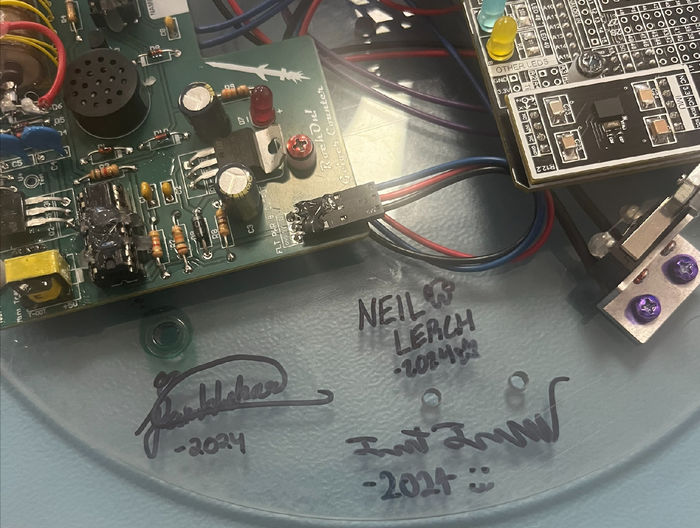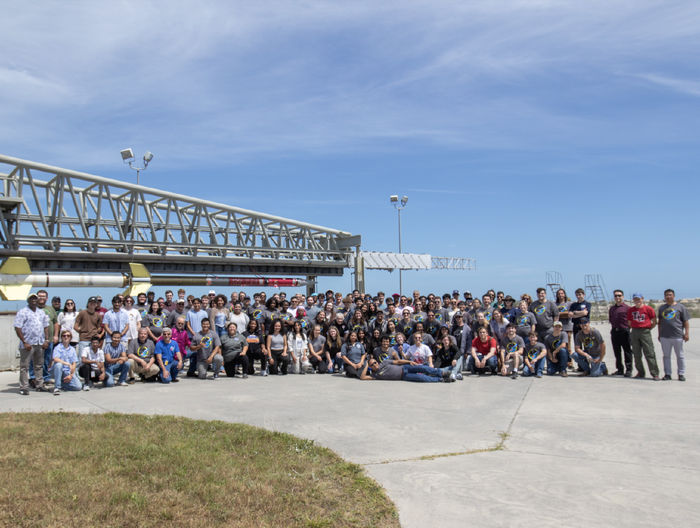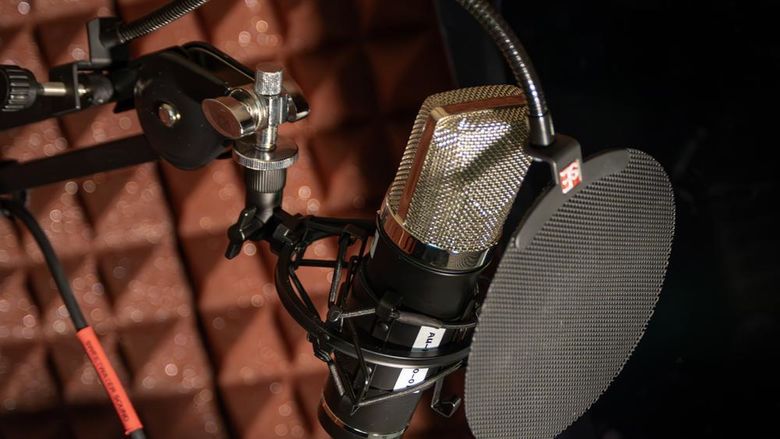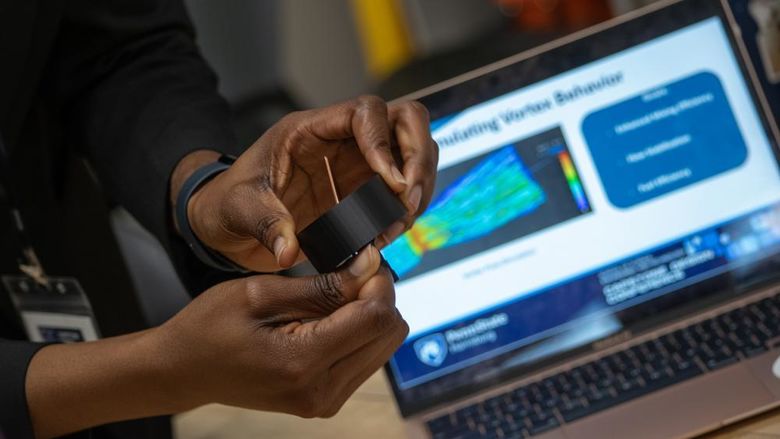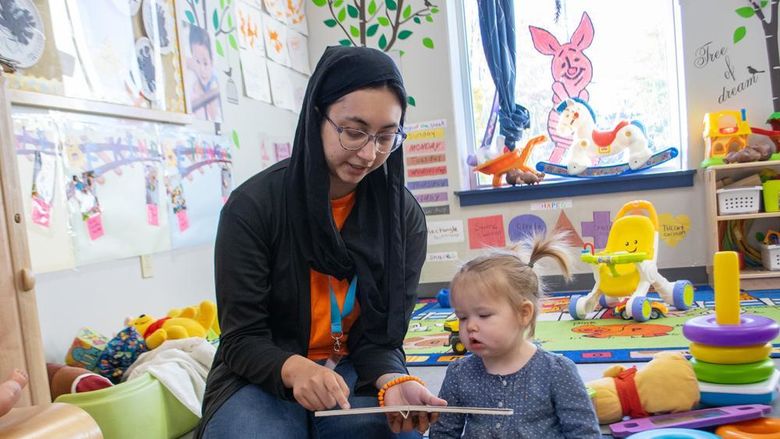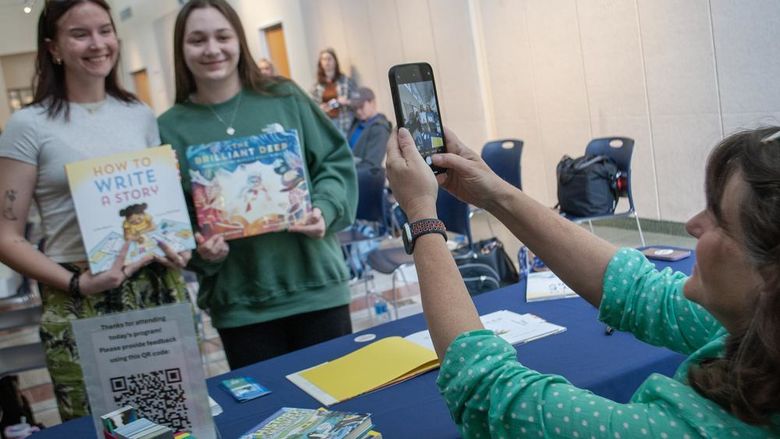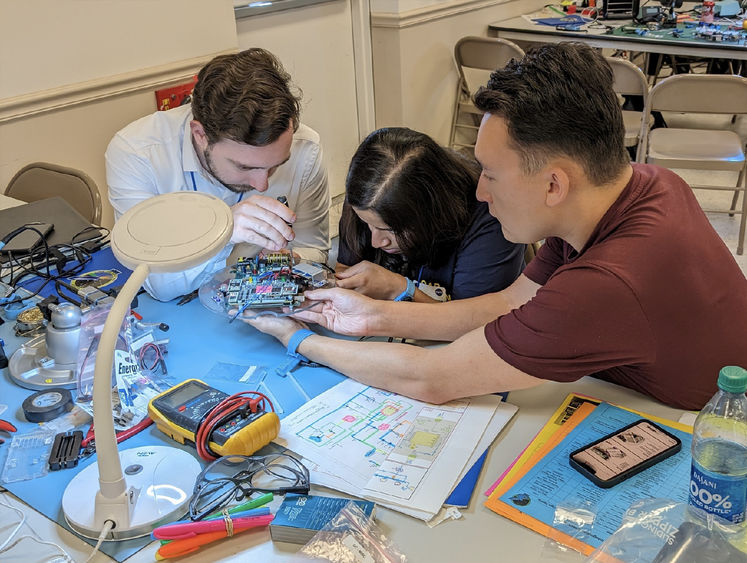
A team from Penn State Harrisburg spent a week at a NASA facility over the summer, building a scientific experiment and sending it to space through the RockOn! program. Penn State Harrisburg students Neil Lerch, a graduate student in electrical engineering, and Trent Townsend, a mechanical engineering major, and University Park student Sara Jambhekar, who is studying aerospace engineering, participated, along with Brian Maicke, associate professor of mechanical engineering at Penn State Harrisburg.
MIDDLETOWN, Pa. — A team from Penn State Harrisburg spent a week at a NASA facility over the summer, building a scientific experiment and sending it to space through the RockOn! program.
NASA’s RockOn! is a weeklong, hands-on workshop teaching participants how to create a sounding rocket experiment and then launch it into space at the end of the workshop.
Penn State Harrisburg students Trent Townsend, a mechanical engineering major, and Neil Lerch, a graduate student in electrical engineering, and University Park student Sara Jambhekar, who is studying aerospace engineering, participated, along with Brian Maicke, associate professor of mechanical engineering at Penn State Harrisburg. The students' participation was funded by the Pennsylvania Space Grant Consortium.
Maicke and the students spent a week in Virginia at the NASA Wallops Flight Facility, where they built a scientific payload consisting of a Geiger counter, accelerometer, gyroscope, magnetometer, pressure, and temperature measurements.
NASA provided the instructions and components, and the students built the payload from scratch. The payload — along with those built by other teams — was then launched into space aboard a sounding rocket, where it collected data such as radiation levels, temperature and the speed of the rocket.
“It gives you a lot of interesting data. It shows you a lot of cool things about how the rocket operates,” Maicke said, adding that the students can now find ways to use the data they collected. He teaches a course on rocket propulsion and might incorporate some of the data there.
Townsend said he has long been interested in working with NASA.
“I have always had a passion to work for NASA since I was a toddler, and this gave me the opportunity to participate in a NASA program,” Townsend said. He added that he enjoyed working with fellow engineering majors with similar passions and learning from the mentors and other helpers at NASA.
“Of course, the real icing on the cake was loading our payloads onto a sounding rocket and seeing it take off before my very eyes,” he said. “I was able to benefit from this in many ways, primarily with hands-on skills such as soldering. I was also able to improve my teamwork and communication skills.”
Now, Penn State Harrisburg is working to spearhead a team from multiple Penn State campuses to participate in the next level of the program — NASA’s RockSat program. In that program, instead of following NASA instructions to build a payload, the teams design their own project to build and send on a sounding rocket.
“It was a great experience,” Maicke said. “I know the students all loved it. They all wanted to go back.”
